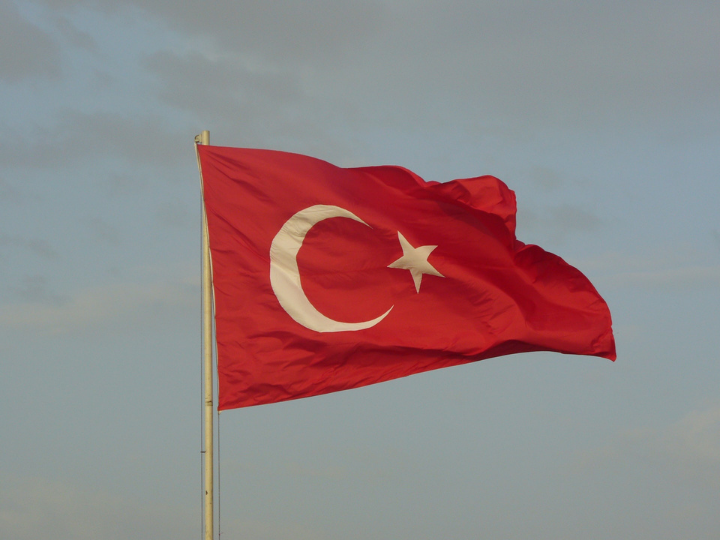by Marc Pierini*
Turkey’s clampdown on human rights is well known. It is amply documented through the European Commission’ successive progress reports, including the most recent one released on October 19, 2021.
Under President Recep Tayyip Erdogan, the country has been undergoing a substantial degradation of its rule-of-law architecture in all relevant fields, from the judiciary and the media to civil society and women’s rights.
The degradation of the rule of law has also affected some of Turkey’s international commitments. One example is its withdrawal from the Istanbul Convention on violence against women, which Ankara hitherto promoted.
Another example is its refusal to abide by the December 2019 judgment of the European Court of Human Rights (ECHR) on the case of businessman and philanthropist Osman Kavala, despite having freely entered the commitments linked to the European Convention on Human Rights.
In other fields, Turkey’s behavior has not been in line with what is expected from a member of the Council of Europe, the ECHR, and NATO.
One example is Turkey’s diplomatic action to water down a NATO statement condemning the diversion by the Belarusian air force of Ryanair flight 4978 on May 23, 2021 in order to arrest an opposition activist.
Such erosion of its rule-of-law architecture is clearly at odds with Turkey’s professed intention to join the European Union: while it regularly issues statements about its ambition to become a member, most of its decisions run counter to the principles and values of the bloc.
Turkey is of course intent on cooperating with the EU and the union has stated its intention to develop a positive agenda under clear conditions: “engage with Turkey in a phased, proportionate and reversible manner.” Turkey’s recent accession to various EU programs, such as ERASMUS+, the research and innovation program, and the European Solidarity Corps, is in itself a welcome development.
However, these positive developments come at a big price, with Ankara imposing a highly selective agenda: in the past few years, Turkey’s leaders have repeatedly refused to entertain an open rule-of-law dialogue with the EU because their priority is “fighting terrorism” and this should supposedly be left to Turkey.
Seen from an EU standpoint, Turkey’s attitude toward the union in the field of the rule of law has a fairly clear rationale: for domestic political reasons, Turkey is making rule-of-law matters a “no-go area” for European—and U.S.—leaders and intends to restrict the relationship mostly to trade, investment, counterterrorism, and migration.
For EU leaders, this is an issue of utmost importance, because accepting Ankara’s selective agenda actively undermines the EU’s core values and principles. Therefore, the union has a stake far higher than its relationship with Turkey and has a duty to defend these values and principles. This can be done in three ways.
First, the EU should reaffirm in the strongest possible terms that the rule of law is an integral part of its domestic and external policies. In the case of Turkey, this policy principle applies to political dialogue, to economic relations (including for any progress on the EU-Turkey Customs Union), and to sectoral high-level dialogues.
In other words, the bloc should make clear that the compartmentalization of EU-Turkey relations to suit Ankara’s domestic political convenience is not acceptable. Altering core EU values and principles in accordance with an allied government’s political preferences should be off limits at a time when these values and principles are also under systemic attack from within the EU and from third countries such as Russia and Belarus.
Second, the EU should maintain a highly principled attitude concerning the case of Osman Kavala and the necessity for Turkey to comply with the ECHR’s judgment of December 2019.
The next hearing in Osman Kavala’s case is scheduled for November 26, 2021, which in principle offers a possibility for the Turkish judiciary to release him pending trial, should it choose to comply with the ECHR judgment. For EU leaders, recalling Turkey’s obligations under ECHR rules is in no way a case of interference in domestic affairs, but is simply reflecting the obligation resulting from the rules freely accepted by Turkey in both the Convention and the Court.
Third, should Kavala not be released pending trial, EU member states must act in the context of the Council of Europe’s Ministerial Committee meeting starting on November 30 in order to make sure that Turkey’s non-compliance with the judgment is tackled according to ECHR rules.
Here again the stakes for the EU are higher than its relationship with Turkey. Not only would the lack of action by EU members of the Council of Europe would constitute an acceptance of Turkey’s political treatment of this case, but it would also introduce a damaging precedent for an institution at the center of Europe’s rule-of-law architecture.
This is where naive and principled reasoning stumbles upon realpolitik. Defending EU values in the way suggested above can easily run against EU member states’ bilateral interests. A case in point is the recent visit of Pedro Sanchez, President of the Spanish Government, to Ankara: a long joint communique stressed all imaginable points of convergence between the two governments (including, according to the Turkish side, military equipment) but stayed mum on human rights and the rule of law. This example illustrates a highly selective implementation by La Moncloa of the latest European Council conclusions on relations with Turkey.
Evidently, consistency within the EU is no small challenge.?.?.
*visiting scholar at Carnegie Europe, where his research focuses on developments in the Middle East and Turkey from a European perspective
**first published in: carnegieeurope.eu




 By: N. Peter Kramer
By: N. Peter Kramer
